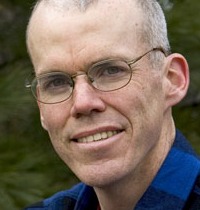I rose from bed today determined to write an at least slightly upbeat report—news came early this morning that New York State treasurer Tom DiNapoli had decided to divest the state’s pension fund from Exxon, after concluding that the oil giant was not serious about making an energy transition.
That may not sound like a big deal, especially since he declined to divest from a bunch of other oil majors like BP and Chevron, and also said New York will continue to keep huge sums of money in passive index funds that invest in Exxon and other fossil fuel giants. Indeed, Divest NY, which has done much of the work to pressure DiNapoli to act, expressed “extreme disappointment” with the stand, and I understand why. There’s really no rational universe where Exxon is bad and Saudi Aramco is somehow acceptable, and so it’s going to be back to work, with ongoing protest and pressure. “With extreme weather already rampaging across the planet, we need all governments to take a firm stand against the continued use of fossil fuels,” said Mark Dunlea, a leader in this fight, and of course he’s right.
Here’s the more optimistic take: DiNapoli, the sole decision-maker about where to invest New York’s public pension funds, controls $285 billion, making him one of the most important money guys on earth and he spent the better part of a decade gamely ‘engaging’ with Exxon to get them to start shifting. Therefore, his decision to call them out matters a good deal—it’s part of the slow, grinding shift away from a fossil-fueled world. Tom Sanzillo, who runs the Institute for Energy Economics and Financial Analysis, and once helped run the New York State fund himself, cited not just DiNapoli’s decision to dump Exxon, but also his plan to put more money into carbon-free funds, and to stop any private equity investments in fossil fuels, as “very big steps toward holding fossil fuel companies accountable on climate change.”
Sanzillo is a hero, like Dunlea indefatigable in his work for a livable planet. He’s also a political realist—the treasurer, he said, could have gone farther, but he was doing more to buck the system than almost any of his counterparts around the country. “DiNapoli ran for office pledging to do his utmost to address the climate issue. And, based on an all things considered review of the situation he is doing just that,” he said. So, progress of a sort.
But then, a little later in the morning, came the news that a (gloating) Fox News described as “stunning.” Chase Bank and Blackrock—two New York institutions with even more money than DiNapoli, indeed the biggest bank and the biggest asset manager on earth—had decided to pull out of the Climate 100 alliance of businesses that were at least nominally concerned with decarbonizing the earth. They were joined by Boston’s State Street, which after Blackrock is the second-biggest asset manager on earth; the third biggest, Vanguard, had already left.
There was no secret what was going on here—the right-wing anti-ESG pro-fossil-fuel lobby had prevailed. As Jim Jordan, the chair of the House Judiciary Committee and all-around not-good guy put it, these were “big wins for freedom and the American economy, and we hope more financial institutions follow suit in abandoning collusive ESG actions.” Twenty one states had threatened members of the Climate 100 with lawsuits. “This ESG nonsense is filtering into a lot of our states and the way they’re doing it is really, really concerning and probably flagrantly illegal,” the Montana AG told Fox last year, adding that solar and windpower were “rainbows and fairy dust.” (In point of fact, Montana is ranked as the second-best wind state in the country, and it already can produce more windpower than coal-fired generation).
It’s not clear to me whether Wall Street (Blackrock and Chase are Wall Street) are legit scared of the red-state politicians, or whether they use them as a convenient excuse to do what they wanted to do anyway. (In Europe, where there aren’t the same density of bought politicians, banks continue to move the other way). But it is clear that they think the zeitgeist has shifted some: when they signed on to the Climate 100 project, it was at the crest of the organizing wave kicked off by Greta Thunberg. They think that wave is weaker now, and they clearly don’t care that last year was the hottest in 125,000 years. They are the epitome of finance capitalism as suicide machine—a phrase I’ve used before, but I can’t think of a better one.
Eventually Big Oil will lose. DiNapoli’s decision to abandon Exxon fits, among other things, with the ongoing trend toward clean energy—a new study out today found that the 200 companies on the leading edge of the transition had generated returns almost double that of the fossil fuel companies over the last decade. “I think it will be surprising to many people that the Clean200 stocks are beating the main fossil fuel index by a factor of almost two to one,” Toby Heaps, one of the reports authors, said. “This is despite the geopolitical uncertainty that has boosted oil and gas stocks, the supply chain and permitting delays that have hampered the rollout of clean energy infrastructure, and the dominance of AI as an investment alpha theme.”
But eventually is too late. We’re in a race. The climate is now heating so fast that a muddled and half-way approach to the energy transition can’t catch up. Blackrock’s Larry Fink and Chase’s Jamie Dimon are now helping the fossil fuel industry slow this change, and in the process dooming us to tenths of a degree higher temperatures—and every tenth of a degree moves a hundred million more people outside of a climate zone where they can thrive. They are destructive and dangerous human beings.
Here’s the response from New York State Senator Liz Krueger (the Albany politician who has done the most to press for divestment) to DiNapoli’s move. After crediting him with “leadership and climate realism in certain investment areas,” she goes on say that he needs to “match his ambition to the moment; the seemingly reasonable excuses that justify incrementalism today will ring hollow to our grandchildren suffering from the irreversible consequences of our inaction.”
That goes, I think, for all of us. Today is one of those days when I feel sucker-punched; more melancholy than angry, a little despairing at the contemptible cowardice of the rich and powerful men who run our banks and hence our lives. But they were frightened by Greta et al before they were frightened by Jim Jordan et al, so back to work.






